Counseling Services offers a wide range of mental health services for UWM students. Click on each tile below to learn more about our services.
To schedule a counseling appointment (in-person or virtual) with a SHAW provider, please call us at 414-229-7429, Option 2. To make a teletherapy appointment with Mantra Health, visit their website and enter your UWM email address.
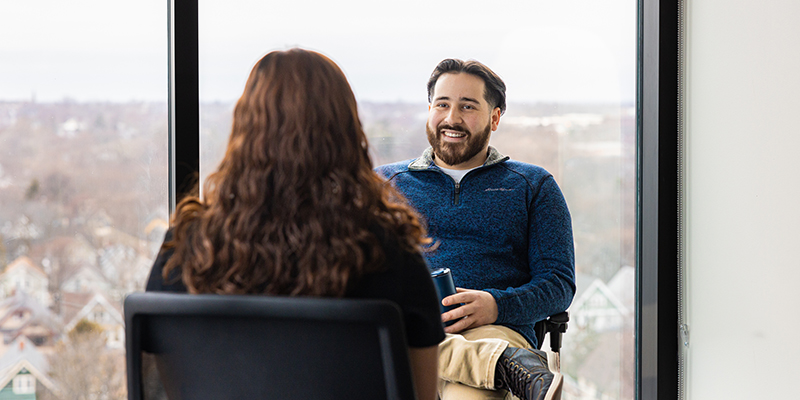
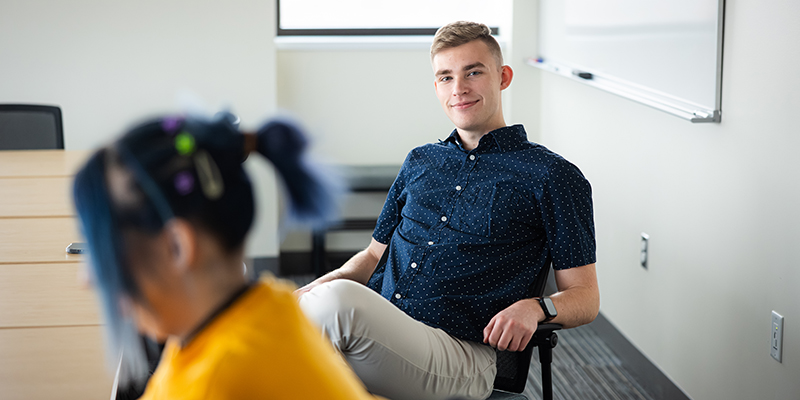


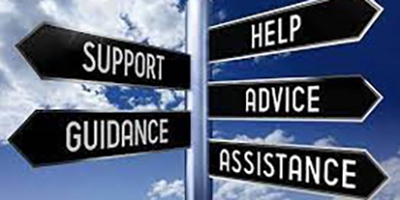





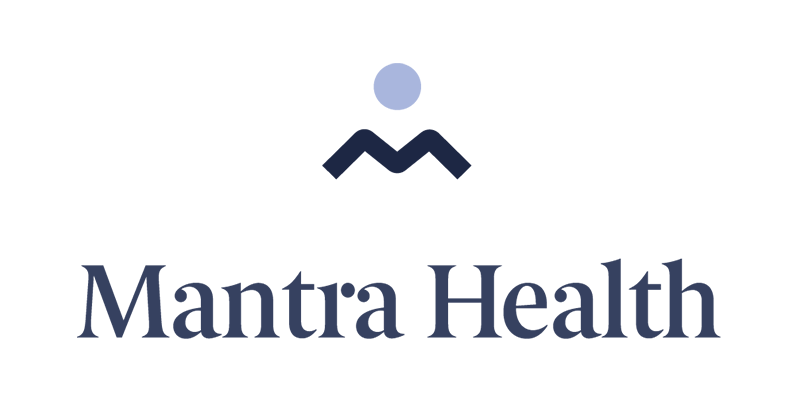


Case Management and Referral Services
Managing the world of health insurance and healthcare is complicated! SHAW Counseling Services offers case management assistance to students who need mental health resources off campus. The clinical case manager will take time to understand your unique circumstances and will help you understand options at UWM and beyond.
Why Case Management?
- Linkage to community mental health resources
- Help applying for and navigating health insurance
- Connection to UWM campus resources for academic, housing and financial support
- Support while reintegrating into campus housing and academic life following a hospitalization
Referral Services and Linkage
SHAW Counseling Clinical Case Management aids students in connecting with resources in the greater Milwaukee area and beyond. Students benefit from referral services when they:
- Need specialized or longer-term treatment
- Want to find providers who offer sliding scale or reduced fee services
- Feel uncomfortable coming to a campus office to receive services for privacy reasons
- Would like a therapist that best represents a specific identity and background
- Are unsure which resource is best
- Need assistance locating providers who accept their health insurance
Students and Hospitalization
Returning to campus after a short or extended absence can be stressful. The Clinical Case Manager works with other offices at UWM and hospital staff to assist the student by:
- Reaching out during the hospital stay and orienting students to SHAW services
- Collaborating about the treatment plan upon discharge from the hospital
- Providing support throughout reintegration into housing and academic life
Use our Community Referral Database to locate local mental health resources.
You can apply for BadgerCare Plus, Wisconsin’s state supported health care and benefits program.
What is the Community Resource Finder?
The community resource finder is a Student Health and Wellness Center database that you can use to find Wisconsin-based mental health resources including therapists, psychiatry services, ADHD/psychological assessments, and more.
To use this database, you will need to log in with your UWM credentials and password. If you would like someone to help you find resources, please see our case management page for more information. Click the button below to begin searching!
Individual Counseling
Individual counseling provides an opportunity to explore and learn about yourself within a confidential, professional relationship. We follow a brief therapy model which is short-term, goal-oriented and solution-focused. Counseling can help through:
- Allowing open discussion and problem-solving about life stressors
- Learning stress management, distress tolerance, and general coping techniques
- Gaining insight into the interplay of your thoughts, feelings, and behaviors in your daily life
- Addressing particularly challenging memories or past experiences
- Identifying aspects of your life you might want to change or improve
- Deepening your understanding of yourself and others and improving your relationships
Some of the most common reasons students seek counseling include: anxiety (worry, nervousness, insecurity), depression (mood, loneliness, disconnection, guilt), self-esteem, identity concerns, alcohol and drug use/misuse, body image and eating behaviors, sexual assault or interpersonal violence, and relationship problems.
Relationship Counseling
Relationship counseling can be appropriate for partners at any stage in their relationship. Individuals must be eligible UWM students.
- Common reasons for utilizing relationship counseling include: sorting through frequent and challenging arguments, improving communication and communication styles, pre-commitment counseling, and exploration of values, expectations, or cultural differences in your relationship.
To schedule a counseling appointment, call 414-229-7429, option 2.
Group Counseling
Community and belonging start here.
Counseling services provide both general interpersonal therapy groups and topic-based groups to support your well-being! Group is designed to help students connect and build community while learning new coping skills in a safe, supportive, accepting space.
Through group engagement, students develop increased self-insight and skills to help navigate life.
- Connectedness
Having a safe place to talk to others about your concerns. A place that supports acceptance. - Universality
Feeling you’re not alone and realizing that others share the same problems, challenges, fears. - Feedback
Group is a safe place to learn how you’re perceived by others and a chance to practice being assertive communication by giving others feedback. Group can help you find your voice! - Insight
A place to learn new perspectives and experiment with new skills and ideas
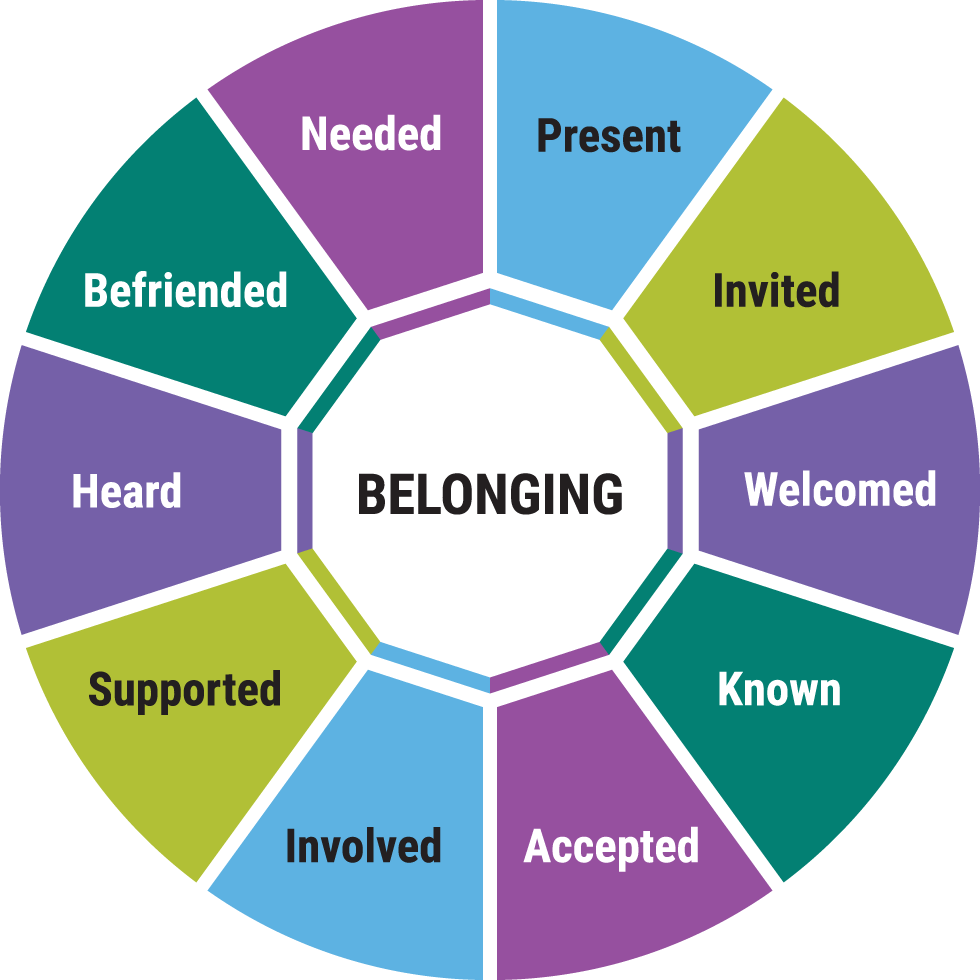
What brings students to Group Counseling?
Students are encouraged to bring concerns big and small to group; If it’s important to you, it’s important in group.
- Anxiety and depression
- Loneliness and isolation
- Feeling uncomfortable in social situations
- Family stressors
- Relationship problems
- Identity and developmental exploration
- Academic stress
- Dealing with uncomfortable feelings
- Grief and loss
A Group Screening is required prior to joining a group. Screening appointments can be scheduled by:
- Calling SHAW Counseling Services, 414-229-7429
- Emailing the Topic Group facilitator
What Students Say About Group
“The best part about group was having a safe space to share my feelings when I felt there was nowhere else to share.”
“If you go into group with an open mind, you’ll walk out with so many new experiences and skills.”
“I learned so much about myself and I’m so happy with the progress I made in group. I can see a positive change in myself.”
“I had a great experience in group. I really felt listened to and cared about. I would definitely recommend!”
“I was hesitant to join group but I can truly say I’m grateful I did.”
Equity & Diversity Statement
At SHAW Counseling Services, we value and respect students of all backgrounds. We appreciate individual differences and strive to honor the unique identities of each person we serve. Our center is an inclusive environment in which all are welcome. Students will be listened to, heard, and supported.
Systems of privilege, power, and oppression can negatively impact students and their mental health and wellbeing. In keeping with our values at the Student Health and Wellness Center and our commitment to health equity, Counseling Services staff prioritize the needs of members of marginalized groups. We believe that expressions of racism, hatred and discrimination in any form are major public health issues and we are committed to building and strengthening relationships across campus and within our community.
We recognize that multicultural competence is an open-ended and ongoing mission and we are committed to continuing education, to confronting our own biases, and to challenging each other to grow.
We acknowledge in Milwaukee that we are on traditional Potawatomi, Ho-Chunk and Menominee homeland along the southwest shores of Michigami, North America’s largest system of freshwater lakes, where the Milwaukee, Menominee and Kinnickinnic rivers meet and the people of Wisconsin’s sovereign Anishinaabe, Ho-Chunk, Menominee, Oneida and Mohican nations remain present.
Training
Counseling Services maintains a dual mission: to provide the UWM student community with the very best mental health services available; and to mentor and train the next generation of mental health clinicians for careers as therapists. We are currently taking trainees for the following programs:
- Advanced Practicum Psychology Training: For psychology doctoral students currently working toward their degree completion.
- Advanced Social Work Internship: Second-year internship placement for MSW students from the Helen Bader School of Social Welfare at UWM.
- Clinical Fellowship: A multidisciplinary opportunity for post-masters, post-doctoral, or ABD students from psychology, social work, or counseling fields.
Consultation
SHAW Counseling Services clinical staff are available to consult with faculty, staff, family, and friends who are concerned about the mental wellbeing of a UWM student. Within the limits of confidentiality and expertise, we will discuss strategies for addressing concerns and assist in the process of obtaining appropriate assistance for the student.
We are available for consultation Monday through Friday between 9 am – 4 pm. Please call 414-229-7429, option 2.
